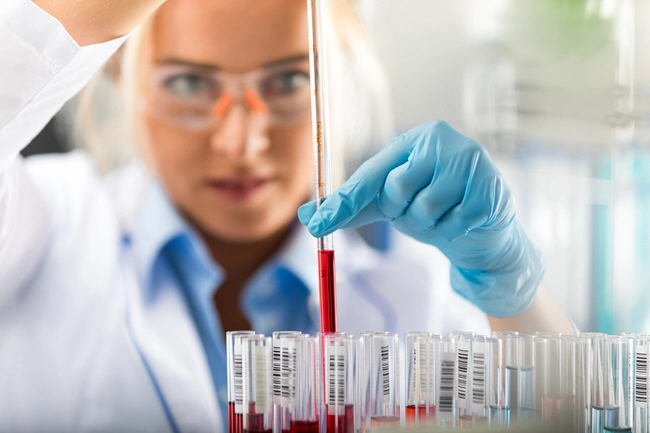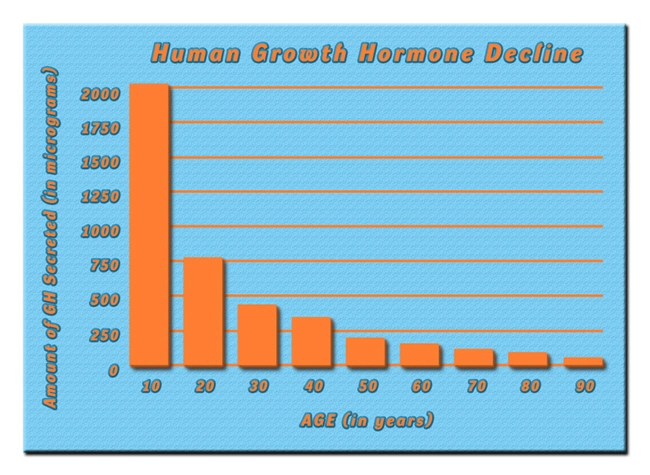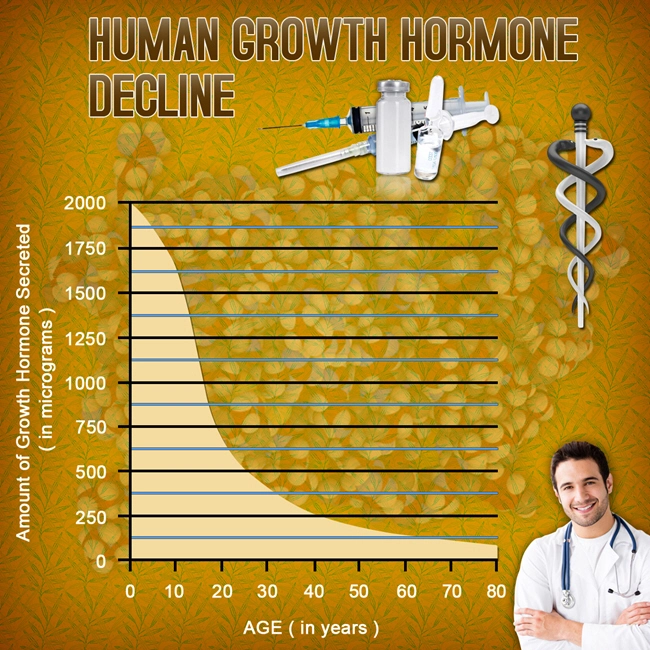
Introduction to Liquid Diets in Bodybuilding
Liquid diets have surged in popularity among bodybuilders seeking rapid weight loss and muscle definition. These diets, which primarily consist of liquids such as shakes, smoothies, and broths, are often touted for their ability to reduce caloric intake while maintaining essential nutrient levels. However, the medical community has raised concerns about the long-term efficacy and safety of such dietary practices, particularly in the context of bodybuilding.
Nutritional Considerations
From a nutritional standpoint, liquid diets can be formulated to meet the macronutrient needs of bodybuilders, including adequate protein for muscle repair and growth. However, the challenge lies in ensuring a balanced intake of micronutrients, such as vitamins and minerals, which are crucial for overall health and optimal bodily function. While some liquid diet plans incorporate multivitamins and mineral supplements, the bioavailability and absorption rates of these nutrients can vary, potentially leading to deficiencies over time.
Impact on Muscle Mass and Performance
One of the primary goals of bodybuilding is to increase muscle mass and enhance physical performance. Liquid diets, by their nature, can lead to a caloric deficit, which may result in muscle catabolism if not carefully managed. Bodybuilders require a precise balance of nutrients to support muscle synthesis, and the restrictive nature of liquid diets can make it challenging to achieve this balance. Furthermore, the lack of solid food can affect digestive health, which in turn can impact nutrient absorption and overall energy levels, potentially hindering workout performance.
Metabolic and Hormonal Effects
The metabolic and hormonal effects of liquid diets are another area of concern. Prolonged adherence to a liquid diet can lead to a decrease in metabolic rate as the body adapts to lower caloric intake. This adaptation can make it difficult for bodybuilders to maintain their desired physique once they return to a solid food diet. Additionally, liquid diets can influence hormone levels, including those related to hunger and satiety, such as ghrelin and leptin. Fluctuations in these hormones can lead to increased hunger and cravings, making it challenging to adhere to the diet long-term.
Psychological and Social Implications
The psychological and social implications of liquid diets should not be overlooked. The restrictive nature of these diets can lead to feelings of deprivation and social isolation, as individuals may find it difficult to participate in social events centered around food. This can contribute to psychological stress, which can negatively impact overall well-being and adherence to the diet. Moreover, the focus on rapid weight loss and body image can exacerbate body dysmorphia and other mental health issues prevalent among bodybuilders.
Medical Recommendations and Alternatives
Given the potential risks associated with liquid diets, medical professionals often recommend more balanced and sustainable approaches to diet and nutrition for bodybuilders. A diet that includes a variety of whole foods, tailored to meet the specific caloric and nutrient needs of the individual, is generally considered more effective and safer in the long term. Additionally, working with a registered dietitian or nutritionist can help bodybuilders develop a personalized nutrition plan that supports their goals without compromising their health.
Conclusion
While liquid diets may offer short-term benefits for bodybuilders seeking rapid weight loss and muscle definition, the potential risks and challenges associated with these diets cannot be ignored. From nutritional deficiencies and muscle loss to metabolic changes and psychological stress, the long-term impact of liquid diets on health and performance is a significant concern. Bodybuilders are encouraged to consider more balanced and sustainable dietary approaches that support their goals while prioritizing their overall well-being.
Contact Us Today For A Free Consultation
Dear Patient,
Once you have completing the above contact form, for security purposes and confirmation, please confirm your information by calling us.
Please call now: 1-800-380-5339.
Welcoming You To Our Clinic, Professor Tom Henderson.

- Unveiling the Synergy Between Body Building and Diabetes Control in American Males [Last Updated On: February 27th, 2025] [Originally Added On: February 27th, 2025]
- The Therapeutic Impact of Bodybuilding on Mental Health [Last Updated On: March 2nd, 2025] [Originally Added On: March 2nd, 2025]
- Enhancing Bodybuilding Performance and Injury Prevention: The Integral Role of Physical Therapy [Last Updated On: March 3rd, 2025] [Originally Added On: March 3rd, 2025]
- Optimizing Nutrition for Successful Bodybuilding: A Comprehensive Guide [Last Updated On: March 4th, 2025] [Originally Added On: March 4th, 2025]
- Body Building: A Strategic Approach to Combat Obesity and Metabolic Syndrome in American Males [Last Updated On: March 4th, 2025] [Originally Added On: March 4th, 2025]
- Bodybuilding: Impact on Health and Body Composition in American Males [Last Updated On: March 5th, 2025] [Originally Added On: March 5th, 2025]
- Exploring the Cardiovascular Benefits of Bodybuilding for American Men [Last Updated On: March 6th, 2025] [Originally Added On: March 6th, 2025]
- Optimizing Orthopedic Health in Bodybuilding: Strategies to Prevent Injuries and Enhance Performance [Last Updated On: March 7th, 2025] [Originally Added On: March 7th, 2025]
- Unveiling the Nexus of Longevity and Body Building: Insights from Geriatric Medicine [Last Updated On: March 7th, 2025] [Originally Added On: March 7th, 2025]
- The Dark Side of Bodybuilding: Risks and Consequences of Anabolic Steroid Use [Last Updated On: March 8th, 2025] [Originally Added On: March 8th, 2025]
- The Endocrinological Blueprint of Bodybuilding: Hormones, Risks, and Strategies for American Males [Last Updated On: March 9th, 2025] [Originally Added On: March 9th, 2025]
- Bodybuilding Boosts Mental Health: Self-Esteem, Stress Relief, and Social Bonds for American Men [Last Updated On: March 12th, 2025] [Originally Added On: March 12th, 2025]
- The Impact of Bodybuilding on Sleep: A Comprehensive Analysis for American Males [Last Updated On: March 13th, 2025] [Originally Added On: March 13th, 2025]
- Unleashing the Power of Body Building: A Therapeutic Approach to Managing Chronic Pain in American Males [Last Updated On: March 15th, 2025] [Originally Added On: March 15th, 2025]
- Bodybuilding: A Potent Strategy for Hypertension Management in American Males [Last Updated On: March 17th, 2025] [Originally Added On: March 17th, 2025]
- Injury Prevention Strategies for American Male Bodybuilders: Expert Physiotherapy Insights [Last Updated On: March 17th, 2025] [Originally Added On: March 17th, 2025]
- Body Building Myths and Facts for American Males: A Holistic Approach [Last Updated On: March 18th, 2025] [Originally Added On: March 18th, 2025]
- Integrating Bodybuilding into Post-Surgical Rehabilitation for American Males: A Physician's Guide [Last Updated On: March 19th, 2025] [Originally Added On: March 19th, 2025]
- Bodybuilding as a Therapeutic Strategy for Osteoporosis in American Men [Last Updated On: March 19th, 2025] [Originally Added On: March 19th, 2025]
- Competitive Bodybuilding: Health Risks and Mitigation Strategies for American Males [Last Updated On: March 20th, 2025] [Originally Added On: March 20th, 2025]
- Bodybuilding's Impact on Endocrine System: Hormones, Health Risks, and Management Strategies [Last Updated On: March 20th, 2025] [Originally Added On: March 20th, 2025]
- Body Building: A Therapeutic Approach to Managing Stress and Anxiety in American Males [Last Updated On: March 21st, 2025] [Originally Added On: March 21st, 2025]
- Debunking Menstrual Cycle Myths: Optimizing Women's Bodybuilding Training [Last Updated On: March 22nd, 2025] [Originally Added On: March 22nd, 2025]
- Bodybuilding Boosts Immunity: A Comprehensive Guide for American Males [Last Updated On: March 22nd, 2025] [Originally Added On: March 22nd, 2025]
- Bodybuilding's Role in Enhancing Addiction Recovery for American Males [Last Updated On: March 22nd, 2025] [Originally Added On: March 22nd, 2025]
- Asthma and Bodybuilding: Safety, Benefits, and Program Tailoring for American Males [Last Updated On: March 22nd, 2025] [Originally Added On: March 22nd, 2025]
- Managing Lifestyle Diseases in Bodybuilding: Strategies for American Males [Last Updated On: March 22nd, 2025] [Originally Added On: March 22nd, 2025]
- Bodybuilding's Role in Enhancing Holistic Health for American Males [Last Updated On: March 22nd, 2025] [Originally Added On: March 22nd, 2025]
- Bodybuilding Strategies for American Males to Combat Age-Related Muscle Loss [Last Updated On: March 22nd, 2025] [Originally Added On: March 22nd, 2025]
- Bodybuilding and Heart Health: Risks and Cardiologist's Mitigation Strategies [Last Updated On: March 22nd, 2025] [Originally Added On: March 22nd, 2025]
- Bodybuilding's Impact on Prostate Health: Hormones, Supplements, and Prevention Strategies [Last Updated On: March 23rd, 2025] [Originally Added On: March 23rd, 2025]
- Bodybuilding in Young Males: Benefits, Risks, and Safe Practices [Last Updated On: March 23rd, 2025] [Originally Added On: March 23rd, 2025]
- Essential Vitamins and Supplements for American Male Bodybuilders: Enhancing Muscle Growth and Performance [Last Updated On: March 23rd, 2025] [Originally Added On: March 23rd, 2025]
- Kidney Health in Bodybuilding: Safe Practices for American Males [Last Updated On: March 23rd, 2025] [Originally Added On: March 23rd, 2025]
- Orthostatic Hypotension in Bodybuilding: Risks, Symptoms, and Management Strategies for American Males [Last Updated On: March 23rd, 2025] [Originally Added On: March 23rd, 2025]
- Body Building: A Non-Pharmacological Approach to Managing Parkinson's in American Males [Last Updated On: March 23rd, 2025] [Originally Added On: March 23rd, 2025]
- Rheumatoid Arthritis Management: Body Building Benefits for American Males [Last Updated On: March 24th, 2025] [Originally Added On: March 24th, 2025]
- Bodybuilding as a Natural Strategy for Arthritis Management in American Men [Last Updated On: March 24th, 2025] [Originally Added On: March 24th, 2025]
- Bodybuilding Boosts Postnatal Recovery for New American Fathers: Physical and Psychological Benefits [Last Updated On: March 24th, 2025] [Originally Added On: March 24th, 2025]
- Bodybuilding Benefits for American Males with COPD: Strength, Respiratory Health, and Well-being [Last Updated On: March 24th, 2025] [Originally Added On: March 24th, 2025]
- Bodybuilding: A Comprehensive Anti-Aging Strategy for American Men [Last Updated On: March 24th, 2025] [Originally Added On: March 24th, 2025]
- Bodybuilding Enhances Gut Health in American Males: Clinical Insights and Benefits [Last Updated On: March 24th, 2025] [Originally Added On: March 24th, 2025]
- Bodybuilding's Psychological Impact on American Teenage Males: Benefits and Risks [Last Updated On: March 25th, 2025] [Originally Added On: March 25th, 2025]
- Bodybuilding Enhances Strength Recovery in American Males Post-Chemotherapy [Last Updated On: March 25th, 2025] [Originally Added On: March 25th, 2025]
- Body Building Enhances Lung Function in American Males: A Respiratory Therapist's Insight [Last Updated On: March 25th, 2025] [Originally Added On: March 25th, 2025]
- Bodybuilding Reduces Colon Cancer Risk in American Males: Diet, Hormones, and Fitness [Last Updated On: March 25th, 2025] [Originally Added On: March 25th, 2025]
- Bodybuilding's Impact on Metabolism: Diet, Training, and Hormonal Effects [Last Updated On: March 25th, 2025] [Originally Added On: March 25th, 2025]
- Essential Safety Guidelines for American Male Bodybuilders [Last Updated On: March 26th, 2025] [Originally Added On: March 26th, 2025]
- Bodybuilding Boosts Immune Health: Optimal Practices for American Males [Last Updated On: March 26th, 2025] [Originally Added On: March 26th, 2025]
- Male Menopause and Body Building: Strategies for Muscle Growth and Health [Last Updated On: March 26th, 2025] [Originally Added On: March 26th, 2025]
- Sickle Cell Disease and Body Building: Benefits, Risks, and Guidelines for American Males [Last Updated On: March 26th, 2025] [Originally Added On: March 26th, 2025]
- Body Building and Heart Health: Benefits and Risks for American Males [Last Updated On: March 26th, 2025] [Originally Added On: March 26th, 2025]
- Bodybuilding: Building Mental Resilience and Fortitude in American Men [Last Updated On: March 26th, 2025] [Originally Added On: March 26th, 2025]
- Bodybuilding Boosts Brain Health: A Holistic Approach for American Males [Last Updated On: March 27th, 2025] [Originally Added On: March 27th, 2025]
- Body Building and Dementia Risk: Insights for American Males [Last Updated On: March 27th, 2025] [Originally Added On: March 27th, 2025]
- Bodybuilding: A Holistic Approach for American Males with Chronic Degenerative Diseases [Last Updated On: March 27th, 2025] [Originally Added On: March 27th, 2025]
- Genetics in Bodybuilding: Optimizing Muscle Growth and Recovery for American Males [Last Updated On: March 27th, 2025] [Originally Added On: March 27th, 2025]
- Bodybuilding: A Preventive Strategy for Musculoskeletal Health in American Males [Last Updated On: March 27th, 2025] [Originally Added On: March 27th, 2025]
- Hydration Strategies for American Male Bodybuilders: Enhancing Performance and Health [Last Updated On: March 28th, 2025] [Originally Added On: March 28th, 2025]
- Bodybuilding Enhances Bone Density in American Males: Training and Nutrition Insights [Last Updated On: March 28th, 2025] [Originally Added On: March 28th, 2025]
- Injury Prevention and Management Strategies for American Male Bodybuilders [Last Updated On: March 29th, 2025] [Originally Added On: March 29th, 2025]
- Bodybuilding as Adjunct Therapy for Mood Disorders in American Males [Last Updated On: March 29th, 2025] [Originally Added On: March 29th, 2025]
- Bodybuilding as a Therapeutic Tool for PTSD in American Males: Benefits and Implementation [Last Updated On: March 29th, 2025] [Originally Added On: March 29th, 2025]
- Bodybuilding's Impact on Life Expectancy: Benefits, Risks, and Balance for American Males [Last Updated On: March 31st, 2025] [Originally Added On: March 31st, 2025]
- Bodybuilding's Impact on Metabolism and Health in American Males [Last Updated On: April 1st, 2025] [Originally Added On: April 1st, 2025]
- Medically Supervised Bodybuilding: A Safe Path to Fitness for American Males [Last Updated On: April 1st, 2025] [Originally Added On: April 1st, 2025]
- Bodybuilding Enhances Cardiovascular Health in American Males: A Comprehensive Guide [Last Updated On: April 2nd, 2025] [Originally Added On: April 2nd, 2025]
- Bodybuilding's Impact on Hormones: Testosterone, Cortisol, and Growth Hormone Fluctuations [Last Updated On: April 5th, 2025] [Originally Added On: April 5th, 2025]
- Gut Health's Crucial Role in Bodybuilding for American Males [Last Updated On: April 5th, 2025] [Originally Added On: April 5th, 2025]
- Bodybuilding Enhances Recovery and Well-being Post Joint Replacement Surgery [Last Updated On: April 5th, 2025] [Originally Added On: April 5th, 2025]
- Stretching Essentials for American Male Bodybuilders: Enhancing Performance and Health [Last Updated On: April 6th, 2025] [Originally Added On: April 6th, 2025]
- Bodybuilding as Effective Stress Management for American Males: Clinical Insights [Last Updated On: April 7th, 2025] [Originally Added On: April 7th, 2025]
- Enhancing Bodybuilding with Flexibility: Benefits and Strategies for American Males [Last Updated On: April 7th, 2025] [Originally Added On: April 7th, 2025]
- Bodybuilding as a Therapeutic Approach to Managing Sciatica in American Males [Last Updated On: April 9th, 2025] [Originally Added On: April 9th, 2025]
- Structured Body Building: A Preventive Strategy for Low Back Pain in American Males [Last Updated On: April 9th, 2025] [Originally Added On: April 9th, 2025]
- Bodybuilding: A Holistic Approach to Managing ADHD in American Men [Last Updated On: April 10th, 2025] [Originally Added On: April 10th, 2025]
- Bodybuilding and Back Pain: Chiropractic Strategies for Prevention and Management [Last Updated On: April 10th, 2025] [Originally Added On: April 10th, 2025]
- Optimizing Protein Intake for Vegetarian Bodybuilding in American Males [Last Updated On: April 12th, 2025] [Originally Added On: April 12th, 2025]
- Bodybuilding Safely During Partner's Pregnancy: Guidelines for Expectant Fathers [Last Updated On: April 12th, 2025] [Originally Added On: April 12th, 2025]
- Bodybuilding Overexertion Risks and Safe Training Strategies for American Males [Last Updated On: April 15th, 2025] [Originally Added On: April 15th, 2025]









